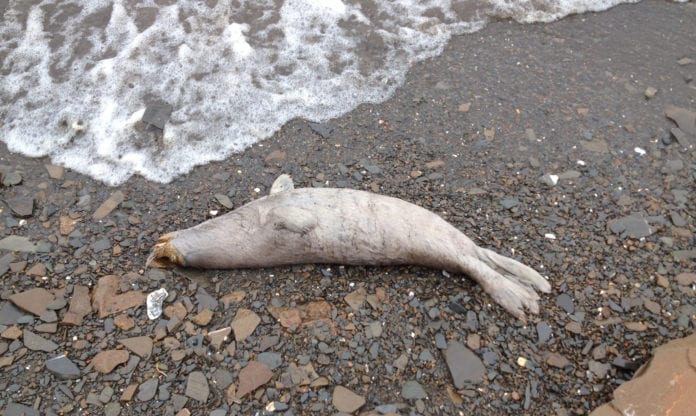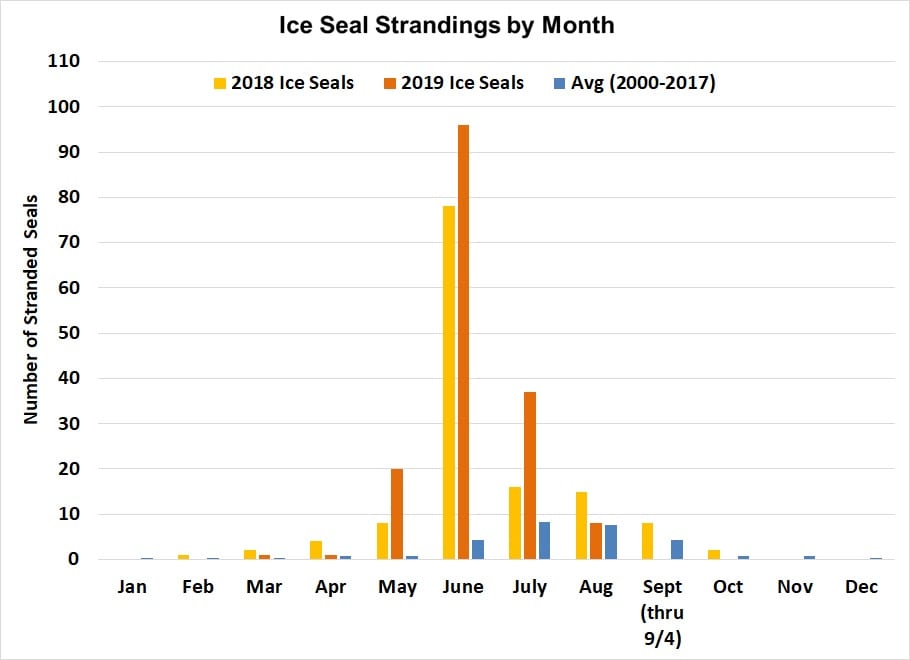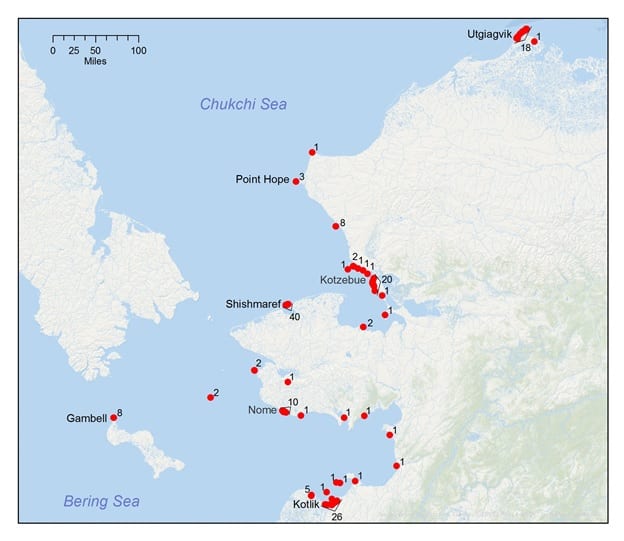
Heightened deaths of ice seals have prompted NOAA to declare an Unusual Mortality Event for bearded, ringed and spotted seals in the Bering and Chukchi seas.
According to NOAA’s report the total includes 282 dead seals, with 119 stranded seals in 2018 and 163 in 2019.
The federal agency said the increase in ice seal mortality is nearly five times the average number of reported strandings, which is about 29 annually. Seals and sea lions are considered stranded when found dead on land or in the water or are in need of medical attention.

Since June 1, 2018, NOAA has documented 85 bearded, 66 ringed, 40 spotted and 91 unidentified stranded ice seals. They included the Beringia Distinct Population Segment of bearded seals and Arctic ringed seals, both of whom are listed under the Endangered Species Act, and Bering Distinct Population Segment spotted seals, who are not listed.
Reports of stranded seals primarily occurred from June to September.
There are seven criteria for determining whether an Unusual Mortality Event has occurred, including a marked increase in the magnitude or a marked change in the nature of morbidity, mortality or strandings when compared with prior records. NOAA determined that the ice seal die-off met the first criterion.
Declaration of an Unusual Mortality Event brings more focus, expertise and resources to help the investigation on why the event occurred.

Alaska Natives living along coastal areas of the Beaufort, Chukchi and Bering seas and Bristol Bay are very reliant on ice seals to maintain their nutrition and subsistence culture. Seals are a source of food and their skins are used for clothing, boats and artistic creations.
Coastal residents and subsistence hunters are often the first to discover unusual wildlife events and provide valuable information for monitoring the health of wildlife populations, NOAA officials said.
Dead, injured or sick marine mammals should be reported by calling NOAA’s Alaska Marine Mammal Stranding Network at 877-925-7773 or contact local wildlife authorities.





